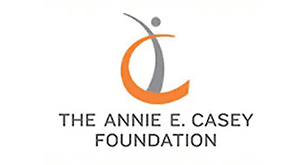In 1987, Surgeon General C. Everett Koop’s Report on Children with Special Health Care Needs1 proposed a series of action steps toward achieving “comprehensive, coordinated, family-centered, community-based services for children with special needs and their families.” The action steps stressed the … Read More
Child Well-Being

Transcending Age-Based Divides: The Case for Scaling Intergenerational Solutions
Major demographic changes in the United States are leading to an increasingly multicultural and Multigenerational society. By 2030, the percentages of adults aged 65 and older and children under age 18 will be roughly the same, with ethnic and racial … Read More

Exploring the Contours of Expert Testimony Regarding Child Sexual Abuse Accommodation Syndrome
The term “child sexual abuse accommodation syndrome” (CSAAS) was initially coined by psychiatrist Roland Summit in 1983 in an effort to understand the various ways children react to sexual abuse. From an evidentiary perspective, not all states recognize CSAAS as … Read More

CDC Guidance for Communities Assessing, Investigating and Responding to Suicide Clusters, United States, 2024
Introduction In 2021, approximately 48,000 lives were lost to suicide in the United States. During this time, suicide was among the 10 leading causes of death among persons aged 10–64 years and the second leading cause of death among children … Read More

FASD United Fetal Alcohol Spectrum Disorders (FASD) Resource Directory
Search the FASD Resource Directory for FASD United affiliates, diagnostic services, support groups, prevention programs, and other resources. Due to a lack of trained professionals and recognition of FASD it can be a challenge to quickly identify accessible FASD-informed services. … Read More

The Unintended Consequences of“Lack of Supervision”Child Neglect Laws: How Developmental Science Can Inform Policies about Childhood Independence and Child Protection
Policies and programs designed to serve children and families are built upon a general understanding of child development. Developmental research has tried to expand that understanding and determine the typical ages at which children acquire certain skills and capabilities, while … Read More

Discrimination In Multi-Phase Systems: Evidence From Child Protection
Introduction Large racial disparities have been documented in many high-stakes settings—such as employment, healthcare, housing, and criminal justice—raising concerns of discrimination by individual decision-makers. At the same time, there is growing understanding that a focus on individual decisions can yield … Read More

Prenatal Drug Exposure: CAPTA Reporting Requirements for Medical Professionals
Why use this fact sheet? As medical professionals who work with pregnant patients, you face numerous medical, legal, and ethical decision points when treating a patient for substance use during pregnancy, and when providing care to a neonate with drug … Read More

Recommendations for Regulating Artificial Intelligence to Minimize Risks to Children and Their Families
From January 2023 to March 2024, multiple entities have published guidance on artificial intelligence (AI), underscoring growing public concerns regarding AI governance. Meanwhile, as federal and state legislators weigh the need for AI regulations to safeguard the public from various risks, recent discourse … Read More

Using Personal Experience To Improve Human Services
PERSONAL EXPERIENCES OF PROGRAMS AND POLICIES The movement toward employing professionals with personal experiences with systems is rooted in both moral arguments and practical considerations: “Our takeaways from this paper are straightforward: When you bring personal experience into program design, … Read More

